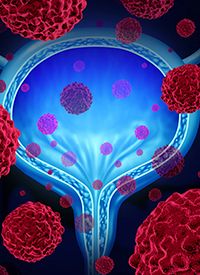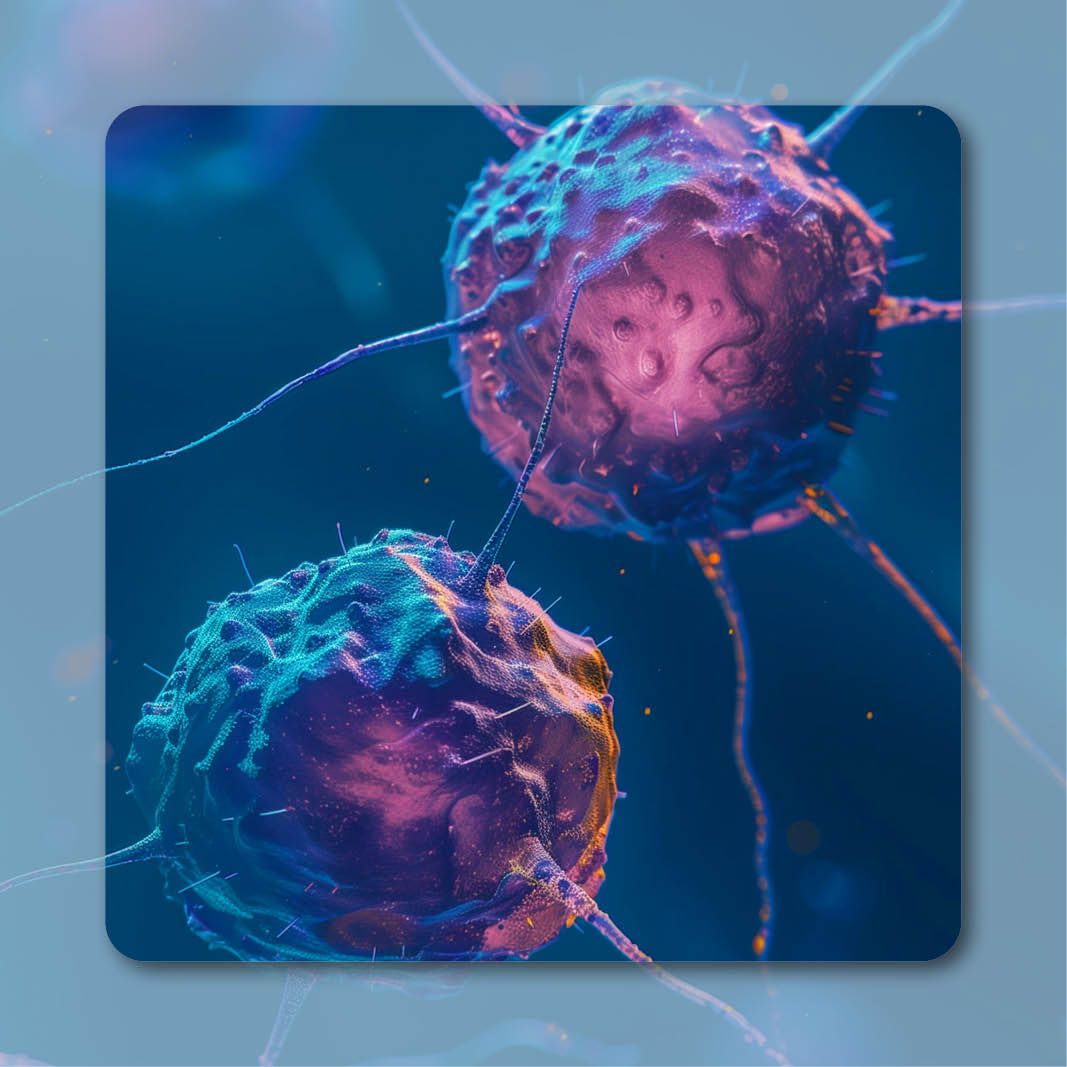News
Article
Perioperative Durvalumab Plus SOC Shows Promising EFS Results in Muscle-Invasive Urothelial Carcinoma
Author(s):
Treatment with neoadjuvant durvalumab plus gemcitabine and cisplatin followed by radical surgery and adjuvant durvalumab for patients with muscle-invasive urothelial carcinoma resulted in 2-year event-free survival rates that met the primary end point of the phase 2 SAKK 06/17 trial.
Perioperative Durvalumab Plus
SOC in MIUC | Image Credit:
© freshidea - stock.adobe.com

Treatment with neoadjuvant durvalumab (Imfinzi) plus gemcitabine and cisplatin followed by radical surgery and adjuvant durvalumab for patients with muscle-invasive urothelial carcinoma (MIUC) resulted in 2-year event-free survival (EFS) rates that met the primary end point of the phase 2 SAKK 06/17 trial (NCT03406650).
Results published in the Journal of Clinical Oncology demonstrated that at a median follow-up of 40 months (95% CI, 39-40), patients (n = 57) experienced a 2-year EFS rate of 75.7% (2-sided 95% CI, 61.8%-85.1%). Investigators noted that the lower bound, 1-sided 90% CI was 67.1%, rejecting the null hypothesis as it exceeded 50%. The EFS rate at 3 years was 73.4% (95% CI, 59.2%-83.4%) and the median EFS was not yet reached.
The open-label, investigator-initiated, single-arm trial enrolled patients with urothelial carcinoma of the bladder, urethra, or upper urinary tract with clinical stage T2-T4a, evidence of disease of at least N1, and no evidence of distant metastases at 11 sites in the Swiss Group for Clinical Cancer Research network in Switzerland and 1 site in Germany. Patients with upper tract disease had positive urine cytology and tumor mass documented by urography. All patients must have been considered candidates for curative multimodality treatment including surgery and all must have had an estimated glomerular filtration rate (eGFR) of greater than 50 mL/min/1.73 m2 according to the Chronic Kidney Disease Epidemiology Collaboration formula.
Patients received neoadjuvant treatment in 3-week cycles for 4 cycles with gemcitabine given at 1000 mg/m2 on day 1 and day 8, and cisplatin at 70 mg/m2 on day 1. Treatment with neoadjuvant durvalumab started with day 22 of chemotherapy at a fixed dose of 1500 mg and was given for 4 doses once every 3 weeks. Investigators noted that cisplatin could be replaced following cycle 1 if grade 3/4 toxicity occurred or eGFR decreased to under 50 mL/min/1.73 m2; however, delaying cisplatin or gemcitabine more than 3 weeks was not allowed.
Almost all patients received the planned 4 cycles of neoadjuvant durvalumab (93%) and almost all completed 4 cycles of neoadjuvant chemotherapy (98%) with 93% of patients receiving at least 7 of the 8 planned cycles of gemcitabine. For cisplatin, 81% received 4 cycles with 18% switching to carboplatin. Adjuvant durvalumab was started in a timely manner for 83% of patients, of whom 64% completed the full 10 cycles; the agent was delayed at least once in 38% of patients following surgery.
Radical cystectomy with lymph node dissection or nephroureterectomy with lymph node dissection was performed within 4 to 8 weeks after the last cycle of chemotherapy or dose of durvalumab.
Further, durvalumab must have been administered 4 to 12 weeks following surgery at the fixed dose of 1500 mg once every 4 weeks for either a total of 10 cycles or a maximum of 40 weeks, whichever came first.
The median age of patients was 68 years (range, 33-81) and most patients were male (79%). Primary tumor locations included bladder (95%), renal pelvis (3%), and ureter (2%). At presentation, clinical T stages were cT2 (70%), cT3 (19%), cT4a (11%) and clinical N stages were cN0 (84%) and cN1 (16%). Patients had a WHO performance score of 0 (86%) or 1 (14%), all were Caucasian, and were either current (40%), former (46%), or never (14%) smokers. Pure UC not otherwise specified was the primary histology (75%) and others included UC with squamous cell carcinoma (11%), UC with adenocarcinoma (7%), and UC with other subtypes (7%).
Secondary end points were EFS, overall survival (OS), recurrence-free survival (RFS) after R0 resection, quality of resection, pathologic complete response (pCR), pathologic response rate, pattern of recurrence, treatment feasibility, and adverse events.
The reported events (n = 14) for the primary end point included unresectable disease at surgery (n = 1), progression after refusal of surgery (n = 3), locoregional recurrence (n = 4), metastatic disease (n = 4), and a combination of locoregional as well as metastatic recurrence (n = 2).
At 2-years, the OS rate was 85.0% (95% CI, 72.3%-92.2%) and at 3-years the OS was 80.8% (95% CI, 67.2%-89.2%). Patients who had R0 resection (n = 51) experienced a RFS rate of 83.4% (95% CI, 69.5%-91.3%) at 2 years and 80.9% (95% CI, 66.5%-89.6%) at 3 years after surgery. The pathologic response rate for patients who underwent resection (n = 52) was 59.6% (95% CI, 45.1%-73.0%) with 32.7% (95% CI, 20.3%-47.1%) of patients have a pCR.
Investigators noted that among the patients who achieved a pCR (n = 17), none experienced a progression event. EFS was also promising in patients ypTis/a/1 staging (n = 14) with 2 events, and there were no events among those with ypT2 staging (n = 6). Overall, patients with ypT2 or lower staging (n = 20) had a 97.0% (95% CI, 80.4%-99.5%) EFS rate at 2 years. However, patients with ypT3/ypT4 staging (n = 15) experienced at 2-year EFS rate of 60.5% (95% CI, 36.2%-78.1%).
“With regard to pathologic N stage, 4 of 44 patients with ypN0 had an event compared with 6 of 8 with ypN [or greater disease],” investigators wrote.
Overall, 30% of patients experienced a grade 4 treatment-related adverse event (TRAE) with 7% relating to durvalumab. Grade 4 TRAEs occurred from neoadjuvant treatment in 25% of patients none of which were associated with durvalumab. Regarding adjuvant treatment (n = 47) 4% of patients had a grade 4 TRAE with durvalumab. Postoperative complications were reported among 52 evaluable patients with in 8% reported a grade 4 event for any treatment and 4% reporting an event with durvalumab specifically. Overall (n = 57), grade 3 events occurred in 54% of patients with any treatment and 19% of patients receiving durvalumab. No grade 5 TRAEs occurred on the study.
As for next steps, investigators noted that the phase 3 NIAGARA trial (NCT03732677) of the same regimen vs chemotherapy alone has completed enrollment.
Reference
Cathomas R, Rothschild SI, Hayoz S, et al. Perioperative chemoimmunotherapy with durvalumab for muscle-invasive urothelial carcinoma: primary analysis of the single-arm phase II trial SAKK 06/17. J Clin Oncol. Published online August 17, 2023. doi:10.1200/JCO.23.00363














%20(2)%201-Recovered-Recovered-Recovered-Recovered-Recovered-Recovered-Recovered-Recovered-Recovered-Recovered-Recovered-Recovered-Recovered-Recovered-Recovered-Recovered-Recovered.jpg?fit=crop&auto=format)
%20(2)%201-Recovered-Recovered-Recovered-Recovered-Recovered-Recovered-Recovered-Recovered-Recovered-Recovered-Recovered-Recovered-Recovered-Recovered-Recovered-Recovered-Recovered.jpg?fit=crop&auto=format)